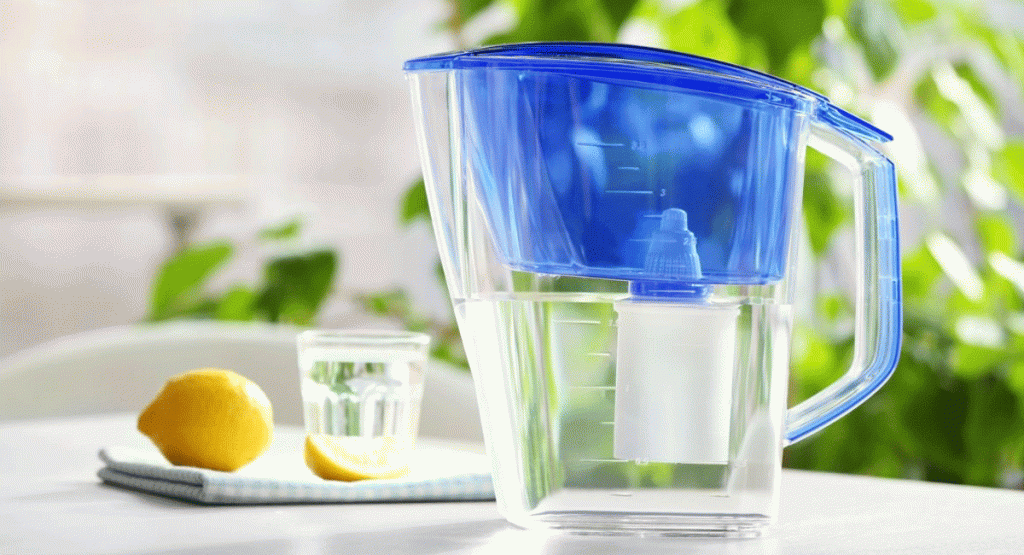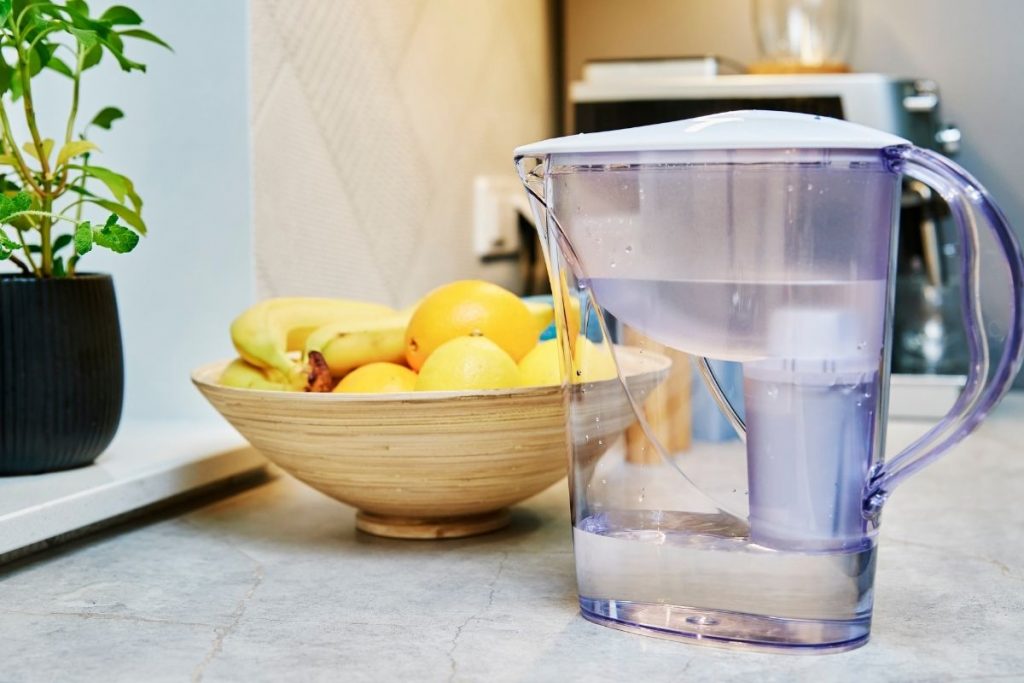The benefits of purified water are something to be grateful for. However,
water filtration can be a complex and multi-layered process, but we guarantee that it’s worth it!
Before you go and install your own water filter system, you need to ensure the water’s cleanliness and purity. The last thing you want to do is bring unfiltered water to your home or office.
What Is a Zero Water Filter?
Zero water is a 5-stage filter that purifies water by using ion-exchange technology, unlike most other kitchen water purifiers that only use carbon activation to absorb impurities.
The exchange of ions for water filtration works by passing water through plastic beads that are loaded with mineral ions.
These charged ions then exchange positions with unwanted contaminant ions in the water. Next, the particles will absorb the pollutant ions as the purified water passes through.
Zero water filters help to remove every mineral from water, making it more drinkable. Zero filters significantly reduce any potential health risks by increasing the number of filtration stages. Heavy metals are also known to be removed by zero filters.

How Does It Work?
Zero water filters operate to decrease the Total Dissolved Solids
(TDS), which is a potential measure of water cleanliness or quality. TDS is usually measured in parts per million and it refers to all inorganic substances suspended in water.
In fact, zero water dispensers often come with a TDS meter that you can dip into the purified water in order to measure the effectiveness of the filter.
Zero water claims that its filters can remove almost all of the solid impurities dissolved in the water.
Benefits of a Zero Water Filter
When you are living in an area with tap water on the low end of the dissolved solids spectrum, in the 250 parts per million range, you’ll get over 0 gallons from your filter.
But, if you are living in an area with large amounts of solids dissolved in your water, in the 200 or 300 ppm, you may only have 1525 gallons of water before you need a new water filter.
One advantage of having a Total Dissolved Solids meter is that you can take measurements of dissolved solids in the unpurified tap water in order to get an idea of how much dissolved solids the filter is absorbing.
Another benefit is that zero water offers a filter recycling program. Instead of just throwing away an old filter, you can return it to the manufacturer for recycling and receive a 50% discount on future filter purchases!
The Lifespan of a Zero Water Filter
The capacity of a zero water filter to remove dissolved solids from water determines its lifespan.
Since the percentage of dissolved solids in any specified water supply varies over time, there is no accurate amount of gallons of water that can be filtered with a zero water filter based on the Total Dissolved Solids in the water.
FAQs
Do We Need to Clean a Zero Water Filter?
Yes! Make sure to wash and rinse all plastic components and filter cartridges thoroughly with warm water.
The longer your zero water filter goes uncleaned, the less effective it becomes. Not only does this put your health at risk, but it devalues the reason you bought the filter in the first place!
Do Unused Zero Water Filters Have an Expiration Date?
No! Unused water filters do not have an expiration date. Water filters have no set shelf life span if they have not been exposed to water. Remember that moisture is what causes water filters to work, so, without it, they’re just sitting there waiting to be used.
What Can Old Zero Water Filters Be Used For?
90% of the components in zero water filters are recyclable. Even the material can be recycled for use in wastewater treatment plants. Zero water filters can also be returned to the company in their original packaging for a discount on replacements!
Do Zero Water Filters Decrease Chlorine?
Yes! After being tested against the NSF international protocol based on a 40-gallon filtration level, it was discovered that zero water removes almost all the chlorine from tap water.
When chlorine combines with a small number of organic compounds normally found in water, it results in very harmful products. Those products create free ions in the body, which can damage cells and are also extremely
carcinogenic, even if ingested in small amounts.
The problems with chlorine stem from the reason that it’s so useful. Chlorine can kill bacteria, which is why it’s added to the public water supply.
Once chlorine is introduced into the water, it kills disease-causing bacteria. However, once it gets into the human body, it destroys the necessary bacteria or animals for our intestinal tract.
Advanced 5-stage ion-exchange water filtration systems reduce more contaminants than a standard 2-stage filter.
Conclusion
The lifespan of a zero water filter can be measured by the number of dissolved solids it filters out and how frequently you use it. A filter will typically last between 3 to 4 months for most zero water filter users, but keep in mind that this time can vary depending on use.
Water is an essential nutrient for our existence. We should make sure that the water we drink is free of organic contaminants or any harmful substances. Hence, water purification systems, such as the zero water filters, are worth buying.
Zero water filters help us bring the right filtered water to our homes!



